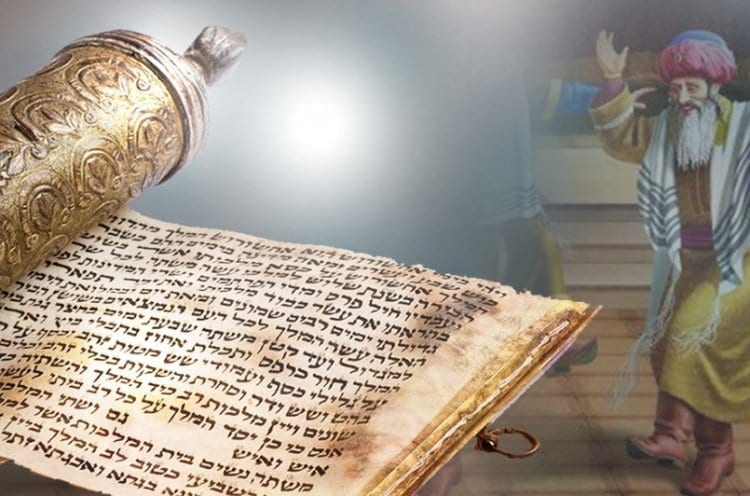Why is this festival different from other festivals in this way? Because the day that the Jews expressed their gratitude to the Almighty for the miracle was not the same in every place. In most countries, the Jews killed their enemies on the 13th of Adar, and celebrated a thanksgiving feast to thank the Almighty for the miracle on the day after. But in the capital city of Shushan, King Ahasuerus granted Esther’s request to let the Jews kill their enemies another day, the 14th day of Adar, so their thanksgiving meal was only held on the 15th of Adar. Therefore it was ordained that the day when we express our gratitude for the miracle in all coming generations would be on two different days (Esther 9:15-19).
It might seem proper to celebrate Purim on the 15th of the month in Shushan and all other cities like it which are surrounded by a wall[1], and to celebrate Purim in other places on the 14th of Adar. But if they would read the Scroll of Esther on the 15th in these towns while in the Land of Israel they would read it on the 14th, this would make diaspora cities like Shushan more important than cities in the Land of Israel, which at the time of the Purim miracle were in ruins. Therefore, in honor of the Land of Israel, they ordained that every city that was walled in the time of Joshua, would read the Scroll on the 15th (Jerusalem Talmud, Megillah 1:1). In Shushan, the Scroll is read on the 15th because this is where the miracle took place. (Megillah 2b).
2. Consequently, in Jerusalem and in every city that was walled in the time of Joshua bin Nun, they read the scroll on the 15th of Adar. Villages that are visible from such a city, such as hilltop villages and those located within a mil of the last house (a mil equals approximately 960 meters = approximately 5/9 of a mile), or are near the city even if they can’t be seen, like if they located in a valley or in the outskirts of the city (within 70 cubits [140 feet] of the city such that they appear as its outskirts), should read the scroll on the 15th of Adar (Chazon Ovadia Purim p. 110. See also Shulchan Aruch 688:2 and the Beit Yosef ibid.).
Other cities and towns and villages read the Scroll on the 14th of Adar.
Ancient cities where there is a doubt if they were walled during the time of Joshua bin Nun, such as Beersheba, Jaffa, Acre, Safed, Lod and Haifa, read on both the 14th and 15th. They recite a blessing before the Scroll reading on the 14th, and read without a blessing on the 15th. This is similar to what was cited in the Gemara that Hezekiah read the Scroll on the 14th and 15th in Tiberias, because of the doubt whether it had the status of a walled city. In Hebron, too, they used to read the Scroll on the 14th and 15th. It is proper to read the Scroll also on the 15th in Bnei Brak, since the entire area from Jaffa until Bnei Brak is populated so that it is considered like one city. (Chazon Ovadia Purim pp. 111-112).
3. In a leap year that has two Adars, Purim falls on Adar II so that the redemption of Purim will fall close to the redemption from Egypt in Nissan (Megilla 6b).
4. The Scroll of Esther is not read on Shabbat. Therefore, if the 15th of Adar falls on a Shabbat, Purim for walled cities such as Jerusalem is divided into three days and it is known as a “triple Purim” (Purim meshulash). On Friday, the Scroll of Esther is read and gifts are given to the poor. On Shabbat, we read the Torah reading of Vayavo Amalek and we add Al Hanissim to our prayers and Grace After Meals. It is proper to add a special dish at the Shabbat meal and drink wine in memory of the miracle. On Sunday we fulfill the commandments of sending portions and the Purim feast. The 14th of Adar never falls on Shabbat. (Shulchan Aruch 688:6 and the Mishna Berura ibid.).
5. One who read the Scroll of Esther in his town on the 14th, and traveled to Jerusalem on the 15th before dawn, is obligated to fulfill all the commandments of Purim in Jerusalem. If he arrived in Jerusalem after dawn of the 15th, he is not obligated to keep the Purim commandments. It is preferable that he not be called to the Torah when they read the section of Vayavo Amalek. Only if he was called up by name, should he go up. (Chazon Ovadia Purim pg. 115. And see the Or Lezion, 1:46, and Torat Hamoadim pg. 239).
6. One who lives in a city where he is obligated to hear the Scroll of Esther on the 14th, but wasn’t able to for reasons beyond his control, should read it on the 15th without reciting a blessing over it (Shulchan Aruch 688:6 and the Mishna Berura ibid.).
It is possible that they chose a walled city as the criteria for keeping Purim on the 15th for two reasons. A natural reason is because the miracle was unique to the city of Shushan, and a wall frequently distinguished a capital city from other cities. A second reason was spiritual, to remind future generations that the Almighty preserves his children like a buttressed wall, and saves them in time of trouble, as it is written, “I will be for them a wall of fire all around, says the Almighty” (Zechariah 2:9).
The Jerusalem Talmud (Megillah 1:1) says: “Villages surrounded by a wall from the days of Joshua bin Nun read the Scroll on the 15th. Rabbi Simon said in the name of Rabbi Yehoshua ben Levi: The sages paid homage to the Land of Israel that was in ruins at the time, and ordained that the cities had to be walled from the days of Joshua.” (See the Gemara in Megillah 2b and Chiddushei HaRamban on Megilla 2b.)




